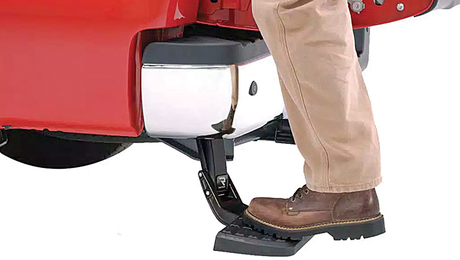New Boiler Install- Antifreeze or Not?
I’m installing a new boiler in an old farmhouse. I have the option of using antifreeze in the system. Does anybody know any reason why I shouldn’t? It sounds like a no-brainer to me, but you never know. Has antifreeze ever been known to adversely affect piping, pumps, seals, or other parts of these systems? This is a baseboard forced hot water design. Are there particular formulations or brand names of antifreeze for this kind of application? Thank you all. I’m getting closer to the big day. Looking for that nugget of info that will seal the deal. Rock on. TN















Replies
add the antifreeze/glycol we had a new boiler put in two years ago when we had a heating pipe freeze during the instalation we drained the system sure enough no glycol last winter the same thing happened and somehow we must have lost the glycol that was in the system. i am currently trying to figure out how to check wether the system is up to snuff for this year. but yes i say add it
By no means am I anywhwere near an expert in hydronic heat. I believe that gylcol (anti-freeze) is something like 20 to 40 % less efficent in the transfer of heat as compared to plain water. Something to think about. Sure don't want to be cold
"I believe that gylcol (anti-freeze) is something like 20 to 40 % less efficent in the transfer of heat..." you're only off by a factor of 4. Reduction in heat transfer on a volumetric basis is 5 to 10%, depending on the concentration.
If you buy an antifreeze made for hydronic systems it contains corrosion inhibitors it would be good for the system. It would be compatible with all your materials.
You give up a little bit of heat transfer capacity. However, in a properly designed system the decision is made to use antifreeze before the design is completed and the system is upsized slightly to compensate. Even so, in your climate don't need protection down to 40 below zero, so you would need a weaker mixture than would be used up North.
I recommend a propylene glycol based antifreeze rather than an ethylene glycol based one. Propylene glycol is considerably less toxic and not an environmental hazard if spilled.
Sometime in the lifetime of the house you will loose electricity, and then you'll be glad you put antifreeze in.
Using anti-freeze is no problem make sure its designed for heating systems [Not automotive] be sure that you have back-flow protection on the potable water feed. Lots of luck.
The only thing good about glycol is that it doesn't freeze. (I stole that from Seigenthaler, but it's so, so true).
Harder to pump, not as good at heat transfer... have to check the ph every year to make sure it's still up to snuff. It's a maintenance item.
However, it doesn't freeze. The question is, what is your freeze risk?
Personally, if possible I'd rather have a backup generator and skip the glycol, maybe with a freeze alarm... if I ever got to go on vacations... sigh...
-=Northeast Radiant Technology=-
Radiant Design, Consultation, Parts Supply
http://www.NRTradiant.com
Where should I look to find the right kind of glycol? I'm in Boise, and I suspect shipping from you would be a little prohibitive, otherwise I'd call...... :-) --Ken
The right kind of glycol is propylene glycol, you can get it in Boise at:
Ferguson, 8243 Westpark Street, Boise, ID 83707 , (208) 376-6660, they stock the Hercules Cryo-tek 100, which is propylene glycol with corrosion inhibitors.
Used to be Familian Northwest?
Can't answer that. I work for Ferguson and know that most of the branches in colder climes stock the Hercules products. Ferguson has abosrbed a lot of companies, so it very well could be.
we don't ship glycol... it's available at pretty much any plumbing and heating supplier. And it's heavy :D-------------------------------------
-=Northeast Radiant Technology=-
Radiant Design, Consultation, Parts Supply
http://www.NRTradiant.com
Indeed.
I need to call you on your heat transfer plates, though. I'll look up the contact info on your web site. --Ken
Glycol/water mixtures, ESPECIALLY propylene glycol/water mixtures, are greatly more viscous than water. At a given flow in a given loop of tubing, the pressure loss will be higher with glycol/water than with water alone, and this gets worse as the temperatures get lower (i.e. the more thermally efficient your system is). Depending on the line lengths and flows required for your design, this may cost you quite a bit of money in terms of requiring either higher operating pressures for your circulator pumps (costing more for the pumps and for the energy to run them), or requiring larger diameter tubing (costing more per foot) or more zones of shorter loop length.
Increased viscosity will also hamper heat transfer from the water into the tubing, but you should be able to overcome that by design.
If your system is designed for water and you switch over to glycol/water, you may end up with a system that doesn't work properly and is considerably less thermally efficient.
That's the nice thing about my antiquated thermosiphon radiant system at home- no need for power. The natural gas grid is incredibly reliable.
If you're using a hot water heater (closed loop) rather than a boiler, you might get by with a back-up system consisting of a single thermosiphon heating loop which is not dependent on a circulator. Used with a battery-operated thermostat and a solenoid valve that opens on loss of power, this loop would operate as long as you had natural gas supply. This loop would probably be inadequate to keep your house comfortable on loss of power, but it would be relatively easy to keep the place from freezing to the point that lines burst.